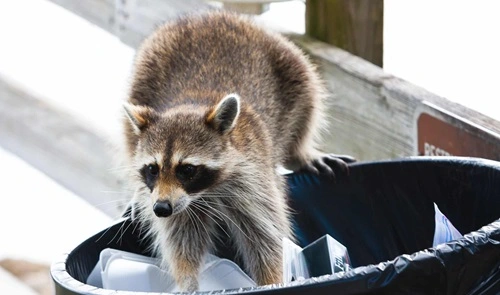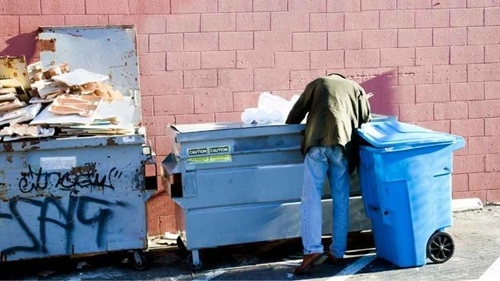Yes, in many cases, it is illegal to kill a raccoon on your property without proper authorization or under specific circumstances. Raccoons are classified as wildlife in the United States and are protected under federal and state laws. Killing them is only permissible when it complies with local regulations, such as during designated hunting or trapping seasons, or with a permit for nuisance wildlife.
Legal Protections for Raccoons in the United States

Raccoons are widely distributed across the country and play an essential role in ecosystems. However, because they are considered a nuisance species in certain situations, states regulate their management to balance wildlife conservation and human-wildlife conflict.
1. State-Specific Wildlife Laws
- Each state determines the legal status of raccoons and sets regulations for their management. These laws vary significantly, with some states allowing property owners to kill nuisance raccoons under specific conditions.
- For example:
- In Texas, property owners can kill raccoons causing property damage without a permit under nuisance wildlife rules.
- In California, raccoons are protected, and lethal control requires a depredation permit from the California Department of Fish and Wildlife.
2. Hunting and Trapping Seasons
- Raccoons are often classified as furbearers, allowing regulated hunting and trapping during designated seasons. A valid hunting or trapping license is required.
- Outside of these seasons, killing raccoons without a permit is generally prohibited.
3. Federal Regulations
- Raccoons are not protected under federal wildlife laws, such as the Endangered Species Act or the Migratory Bird Treaty Act, but states have the authority to enforce their own conservation rules.
When Is It Legal to Kill a Raccoon on Your Property?
1. Self-Defense
- If a raccoon poses an immediate threat to human safety, such as showing aggressive behavior or signs of rabies, it is typically legal to kill it in self-defense. However, this should be reported to local authorities or animal control.
2. Nuisance Wildlife Permits
- Property owners can apply for a nuisance wildlife or depredation permit to address raccoons that are causing significant damage to crops, property, or livestock. These permits allow for legal removal or killing of the animal.
3. Hunting and Trapping
- Killing raccoons during open hunting or trapping seasons is allowed with a valid license. Specific rules regarding bag limits, trapping methods, and firearms must be followed.
Penalties for Killing a Raccoon Illegally
Killing a raccoon without authorization can result in significant legal consequences:
- Fines
- Fines vary by state and can range from $100 to $1,000 or more per violation.
- License Suspension
- Hunting or trapping privileges may be suspended for violating wildlife laws.
- Criminal Charges
- In severe cases, individuals may face misdemeanor charges, which could include additional fines or jail time.
Non-Lethal Alternatives to Address Raccoon Problems
1. Deterrents
- Use motion-activated lights, sprinklers, or sound devices to discourage raccoons from entering your property.
- Secure garbage bins and eliminate food sources to reduce attraction.
2. Trapping and Relocation
- In some states, raccoons can be trapped and relocated with a permit. However, relocation is often discouraged as raccoons may struggle to survive in unfamiliar environments.
3. Professional Wildlife Control
- Licensed wildlife control operators can handle raccoon issues legally and humanely, ensuring compliance with state regulations.
Related FAQs
Q1. Can I kill a raccoon on my property if it’s damaging my home?
Ans: Yes, but only if allowed under your state’s nuisance wildlife rules. You may need a permit in some jurisdictions.
Q2. Is it illegal to kill raccoons in urban areas?
Ans: In many urban areas, killing raccoons is restricted due to local ordinances. Non-lethal removal methods are typically encouraged.
Q3. What should I do if a raccoon is in my attic?
Ans: Use humane traps or contact a licensed wildlife removal service. Avoid handling the situation yourself without understanding local laws.
Q4. Can I hunt raccoons year-round?
Ans: No, raccoon hunting is generally limited to designated seasons. Hunting outside of these seasons is illegal without a permit.
Q5. What are the penalties for killing a raccoon illegally?
Ans: Penalties include fines, potential jail time, and the suspension of hunting or trapping licenses.
Q6. What should I do if I suspect a raccoon has rabies?
Ans: Contact your local animal control agency immediately. Do not attempt to handle or kill the raccoon yourself.
Conclusion
While it may be legal to kill a raccoon on your property under specific conditions, it is essential to understand and comply with state wildlife regulations. Applying for permits, using non-lethal methods, or contacting professionals can help address raccoon issues effectively and legally. Killing raccoons without proper authorization can lead to significant fines and other penalties.

